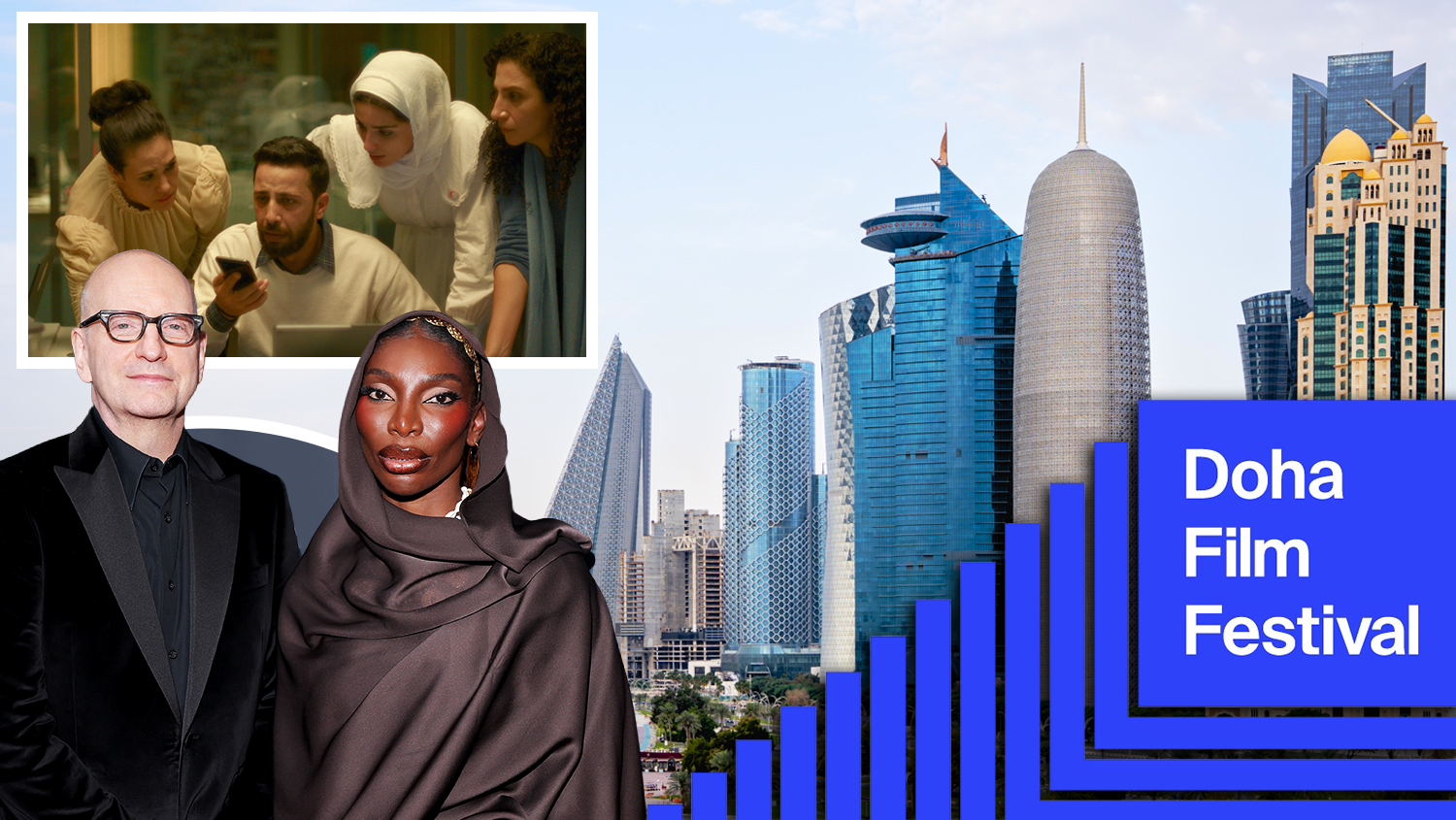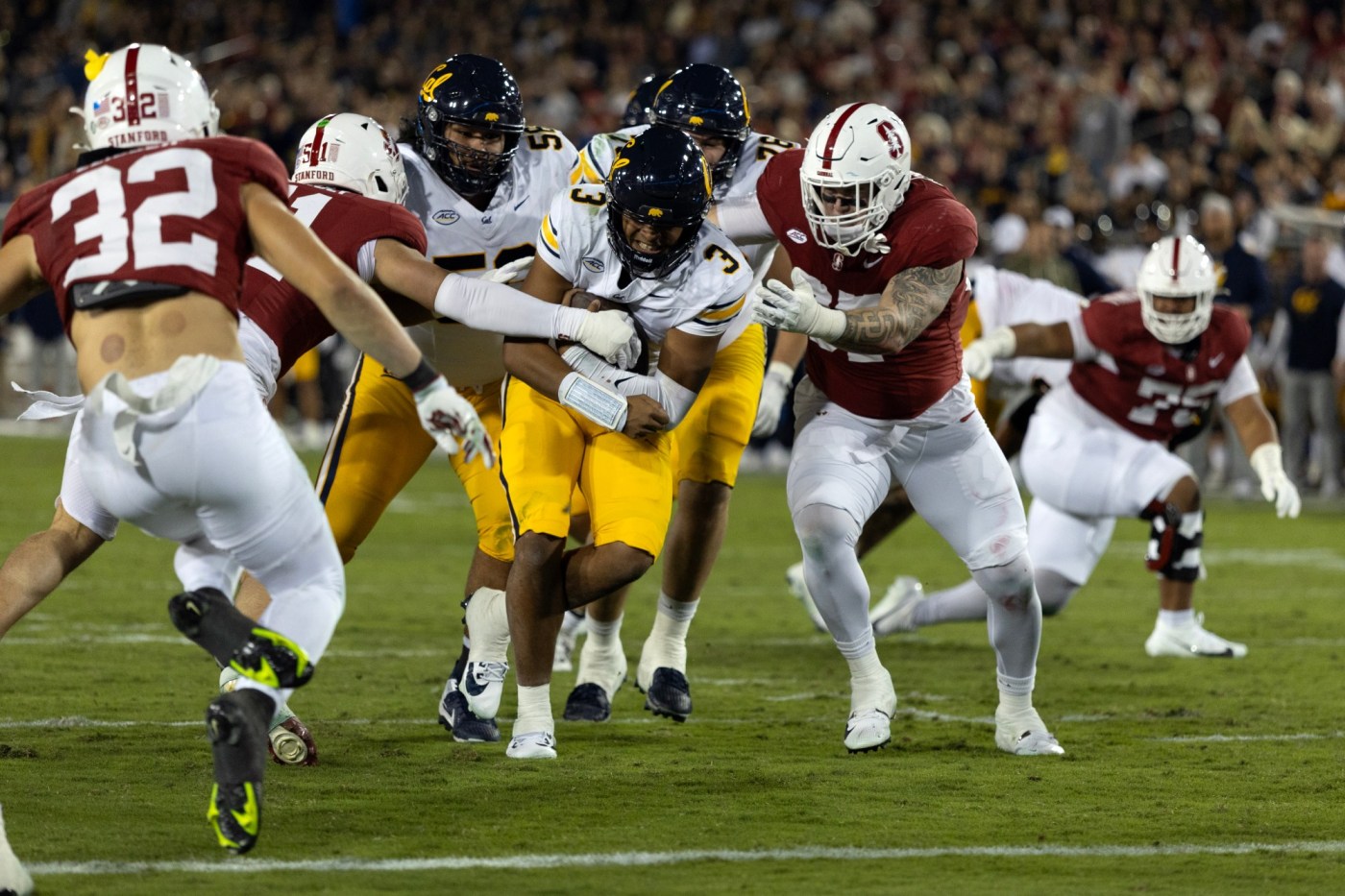Things are cooking for cinema in Qatar as the gulf state ramps up its presence on the Middle East and North Africa fall film festival circuit this week with the launch of the Doha Film Festival. Kaouther Ben Hania’s Brad Pitt and Joaquin Phoenix backed The Voice of Hind Rajab, about the real-life killing of a six-year-old Palestinian girl by Israeli troops in Gaza in early 2024, opens the inaugural edition running from November 20 to 28. The drama, constructed around an audio recording of Hind Rajab begging for help, has special resonance in Qatar which is a staunch supporter of the Palestinian people’s right to an independent state and was thanked by President Donald Trump in October for its mediation efforts in the Gaza peace deal. “Her voice is still very loud and very strong. She’s a loss that is continually talked about and still being investigated. It’s fresh in our minds,” says Fatma Hassan Alremaihi, CEO of the Doha Film Festival which is spearheading the festival. “It sets the tone for the whole festival and says we’re always there for these stories and these filmmakers and to represent our region the best way we can.” At the heart of the new festival is an international competition, in which 13 buzzy world cinema titles will compete for $300,000 of prize money, while a smattering of big names such as Steven Soderbergh and Michaela Coel are also set to attend. The new event builds on the DFI’s public and family focused festival Ajyal, which ran from 2013 to 2024 during the same period of the year, with a local youth jury and the aim of building a previously near non-existent cinema culture. It is part of the DFI’s year-round activities spanning workshops, a grants programme which has supported close to 1, 000 films to date, and regular screening events at its HQ in Doha’s Katara Cultural Village neighborhood. Hassan Alremaihi, who has headed the 15-year-old institute since December 2014 and is also festival director, says the new event is a natural progression, which dovetails with Qatar’s wider film and TV ambitions as it seeks to broaden its economic activities beyond oil and gas. She points to the growing activities of Media City Qatar (MCQ), which was created in 2019 to kickstart the country’s media, tech, and creative industries, and the Qatar Film Committee, which falls under its remit. The latter body was created in 2022 and is headed by Hassan Al Thawadi, the Qatari lawyer who oversaw the organization of the 2022 FIFA World Cup soccer tournament. Having quietly worked on strategy and brokering partnerships under the radar until now, the organization will be hosting top international film and TV execs for industry meetings during the festival and is expected to make several big funding and partnership announcements. “One of the good things about the institute is its adaptability. Over the years, we adapted and changed and now we’re in a moment where a lot of things are coming together, especially with the introduction of the Qatar Film Committee and the existence of Media City Qatar,” says Hassan Alremaihi. “More and more companies are opening in Qatar and creating from inside Qatar. We thought this festival can encompass this and have more industry participation, not just from all over the world but also from here.” In the backdrop, the festival unfolds within the context of Qatar’s biggest ever fall season program of cultural, sporting and entertainment events, the expansion of which is a growing trend across the Gulf region. Highlights include Doha Comedy 2025 with Mo Amer, star of Netflix comedy hit Mo, and his sidekick Adi Khalefa as well as a separate show with Egyptian standup Alaa El Sheikh; the country’s first-ever UFC Octagon event; the Qatar Formula 1 Grand Prix, for which Metallica, Seal and Algerian music legend Cheb Khaled, aka King of Raï, are flying in to perform, and the FIFA Arab Cup. The Doha Film Festival joins an increasingly busy MENA fall festival season, which kicked off this year with Egypt’s El Gouna (Oct 16-24) and Cairo (Nov 12-21) and continues with Morocco’s Marrakech (Nov 28-Dec 6), Saudi Arabia’s Red Sea (Dec 4-13) and Tunisia’s Carthage (Dec 13-20) film festivals. Industry insiders suggest Doha’s timing ahead of Marrakech and Red Sea is smart in terms of securing MENA premieres and also works for international guests because its key events are done and dusted ahead of the Thanksgiving holidays. Not being too close to Christmas and other end of year festivities is also seen as a bonus. Hassan Alremaihi says that the dates are in keeping with predecessor Ajyal, adding that the concentration of MENA festivals has not hindered its ability to secure titles. “Ajyal was at a similar time, so nothing has really changed for us. We got what we wanted and we’re happy with the program. We were aiming for 12 to 14 titles for the main competition and we have 13,” she says. The inaugural lineup has remained true to DFI’s remit of nurturing local and regional filmmakers as well as supporting emerging voices from outside MENA telling stories of lives rarely tackled for the big screen, with many of the selected films also recipients of its grants program. Several competition films have already made waves on the European and North American film festival circuits across this year. The contenders include Cannes Un Certain Regard Best Director winner Once Upon A Time In Gaza by Palestinian duo Tarzan & Arab Nasser; Qatar resident Suzannah Mirghani’s timely Sudanese drama Cotton Queen, which world premiered in Venice and has just won best international film at Thessaloniki; Hasan Hadi’s Cannes 2025 Camera d’Or winner The President’s Cake, Iraq’s Oscar entry this year, and Iranian drama Divine Comedy by Ali Asgari, which won the Special Jury Prize in Antalya. Fiction titles from outside of MENA include Locarno best first feature winner Blue Heron by Canadian-Hungarian director Sophy Romvari; Chie Hayakawa’s second feature Renoir (Japan), Guillermo García López’s Sleepless City (Spain), Jean-Francois Ravagnan’s The Last Shore (Belgium) and Pablo Pérez Lombardini’s The Reserve (Mexico). There are also four documentaries: Khartoum, which explores recent events in war-torn Sudan through the eyes of four filmmakers and world premiered at Sundance; With Hassan in Gaza, in which director Kamal Aljafari’s searches for a man he was imprisoned with in the Palestinian territory in 1989; Jihan K’s My Father and Qaddafi, exploring the disappearance of her Libyan politician father, and Truong Minh Quý and Nicolas Graux’ Hair, Paper, Water, giving insight into the Ruc people of northern Vietnam through the life of an elderly woman. Cambodian Oscar-nominated documentarian Rithy Panh (Missing Picture), who has mentored its documentary programs for many years, will preside over the jury. He is joined by Tunisian director and screenwriter Raja Amari (Foreign Body), Moroccan filmmaker and actor Faouzi Bensaïdi (Deserts); Tunisian actor and filmmaker Dhafer L’Abidine (Ghodwa) and Alessandra Speciale, founder and curator of the Venice Film Festival’s Final Cut in Venice. There will also be special screenings of Soderbergh’s The Christophers, Re-Creation by Jim Sheridan; Shoot the People by Andy-Mundy Castle; My Story by Yasser Ashour; Palestinian Oscar entry Palestine 36 by Annemarie Jacir and Qatari feature film Sa3oud Wainah? by Mohammed Al-Ibrahim. In other sidebars, the International Short Film Competition will showcase 20 works including Palme d’Or winner I’m Glad You’re Dead Now; Beneath Which Rivers Flow; L’mina and Samba Infinito, while the Made in Qatar lineup features 10 short works made by Qatari or Qatar-based filmmakers. Continuity Longtime DFI film programmer and filmmaker Majid Al-Remaihi, says it was important that the lineup was cohesive with the institute’s work as well as the legacy of Ajyal and that festival’s role in helping to build a local cinema culture. “It was quite important to take a step back. We’d had this long run of Ajyal, which fulfilled a very important missing piece in terms of establishing what is the role of a cinema institution in a place like Doha if there isn’t really cinephilia,” he says. “Thinking about evolving that into a more standard international film festival, it was important that the programming should not be disingenuous to the institute and the films it supports. to build a lineup that reflects the institute’s identity and also has room for films that it has not supported.” He adds the focus was also on emerging talents making waves within their home territories and internationally, citing filmmakers such as Romvari (Blue Heron), Hayakawa (Renoir) and Hadi (The President’s Cake). “Blue Heron is a standout title. and it’s exciting to have a North American film in competition that blends with The President’s Cake, or Sleepless City and Renoir,” Al-Remaihi says of Romvari’s drama about a Hungarian family which relocates to Canada’s Vancouver Island in the late 1990s. “There’s a chunk of debut filmmakers who are really introducing something new in the cinema of their own contexts. we’re seeing these different approaches to narrative cinema, which are both accessible and touching on recent modern history,” he adds. Films not stars It’s not the first time Doha has attempted to get a major international film festival off the ground. In the early days of the country’s push into film and TV, the then nascent DFI partnered with Tribeca on the Doha Tribeca Film Festival from 2009 to 2012. Tribeca cofounder Robert De Niro, Freida Pinto, Rob Lowe, Robin Wright, Salma Hayek, Geoffrey Gilmore, Michelle Yeoh and Mira Nair were among the stars and filmmakers who hit its red carpet over its four-year run. While the event brought a touch of Hollywood and red-carpet glamor to the country, it drew criticism for not catering to local audiences or nurturing local talent. The partnership was dissolved in 2012, with the DFI resetting its strategy to launch Ajyal in 2013, and its springtime industry focused Qumra event, aimed at nurturing its grantee projects, in 2014. The latter event has hosted a raft of top actors and filmmakers over the years such as Toni Collette, Gael Garcia Bernal, Tilda Swinton, Walter Salles, Asghar Farhadi and Claire Denis who are invited in the mentorship role of Qumra masters. There is no red carpet and the event’s appeal is its intimate atmosphere and focus on the projects and emerging talent. DFI CEO Hassan Alremaihi says the new Doha Film Festival is unlikely to go down the Hollywood star route of Doha Tribeca Film Festival. Its inaugural edition will welcome a handful of big names such as Soderbergh, Coel and American standup comedian and actor Ramy Youssef as well as regional stars including Turkey’s Engin Altan Duzyatan and Hazal Kaya, Kuwait’s Jassim Al Nabhan, Egypt’s Dorra Zarrouk and Palestine’s Saleh Bakri and Hiam Abbas but is steering clear of attempting to fill a red carpet with Hollywood A-listers. “The main thing is meaningful participation and whether someone makes sense for the festival and community. It’s not about the stars for us, the films in the competition are the stars. The opening night film is the star,” she says. “We definitely have a few people coming out but they’re all doing something specific in the festival, and contributing to this evolution that we have. So for us, stars that are serving a meaningful purpose are very, very important, but we don’t like to have stars, just to have them.”.
https://deadline.com/2025/11/festival-in-focus-doha-film-festival-films-not-stars-1236620049/
Festival In Focus: Inaugural Doha Film Festival Treads Own Path As Qatar Steps Up Cinema Drive: “The Films Are The Stars”


